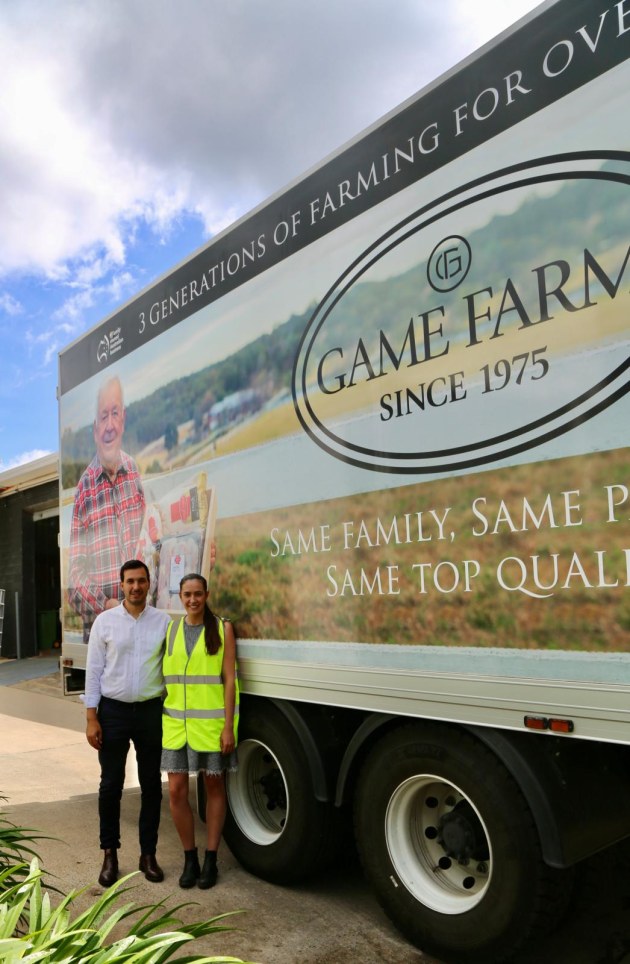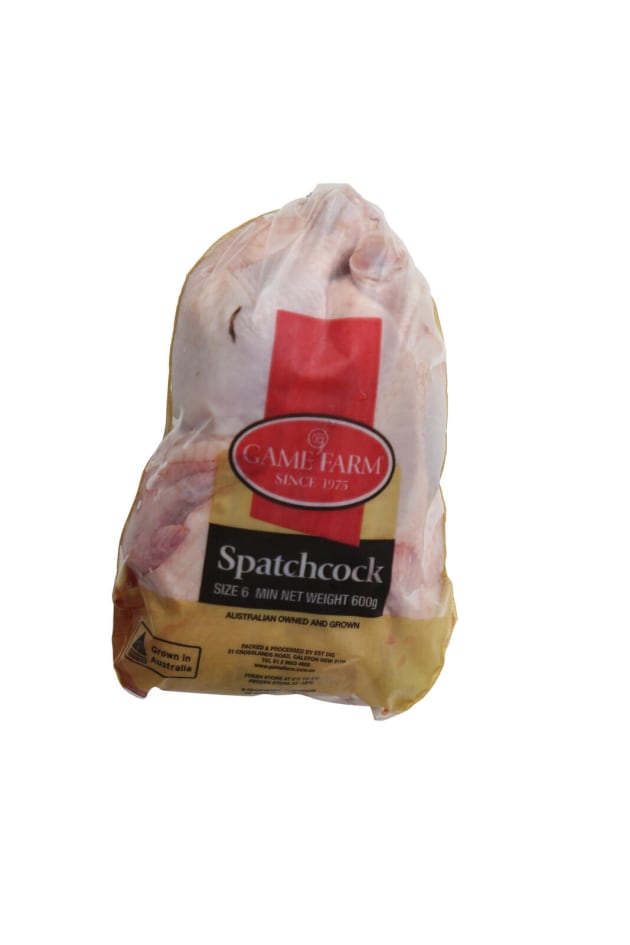While chicken remains Australian’s firm favourite protein, the pandemic and associated supply chain woes allowed other poultry offerings to fly. Peter Bedwell talks to one producer, Game Farm. This article first appeared in the March 2022 edition of Food & Drink Business.
In 1975, Olivia and Armenio Bento established Game Farm in an old furniture factory in inner Sydney. Today, their son in law Scott Evans is the managing director.
“They recognised the potential market for quail among the large numbers of Southern European migrants like themselves who had migrated to Australia in pursuit of a better life for their families,” Evans says.
While the company has grown substantially from those early days, many of the family are still keenly involved in its operations, with three generations now contributing to its success.
Game Farm now has processing facilities at Galston on Sydney’s northern outskirts, a distribution centre in Strathfield, and a breeder and grow-out farm for quail and quail eggs in Mandalong, Northern New South Wales.
Game Farm’s quail products include whole birds, semi and totally deboned cuts, and eggs. The company has also expanded its product range to include spatchcock (a young chicken), duck and other game products.
Evans says the company has adapted with changing consumer tastes and expectations.
“Consumers want more than just taste and cost. It now includes health benefits, environmental impacts, and animal welfare considerations,” Evans says.
Regenerative pastures
Game Farm now has a “pastured” quail in its range. It means the birds are reared and moved daily onto fresh pasture while being protected from predators on the farm’s rich vegetation.

The quail are raised from around three weeks of age to market weight birds at a pasture based regenerative farm near Taralga in Central West New South Wales.
Quail, unlike commercial broiler chickens are excellent little aviators so free-range rearing is not an option.
The farm – Tathra Place Free Range – is owned by Luke and Pia Winder. When they bought the 100-acre property seven years ago, 60 per cent of the land was covered in blackberry bushes and the soil was in poor condition.
The Winders started to regenerate the farm by raising laying hens, cross bred free-range pigs, and then cattle. As the land recovered and started producing nutritious pasture, they added ducks and then quail for Game Farm.
Today their multi species farm raises not only quail for Game Farm but also free-range Peking Aylesbury Ducks that are exclusively marketed by Game Farm.
Luke Winder estimates at least 25 per cent of feed for the multi species operation comes from the rich pasture that the regenerated land produces.
Flock watch
With a combination of free-range ducks, quail, and even piglets raised outdoors, predators are a consideration, with another critical species sharing the Winder’s verdant paddocks – Maremma dogs.
These amazing canine flock guardians were first used to guard lambs and goats as long as 7000 years ago, and they are just as effective today as they were then.
Good things come in small packages

Quail has been regarded as having health benefits for more than 800 years. It is rich in protein and while quail eggs are small, they are nutrient dense.
A single quail egg provides a significant chunk of a person’s daily requirement of vitamin B12, selenium, riboflavin, and choline needs, all in a serving that contains around 14 calories.
Game Farm currently sell the eggs in a dozen carton, and general manager (and third generation Game Farm family member) Ashleigh Evans says they are exploring options to offer the eggs in a ready to eat format.
Evans says the company has conducted significant work to improve the genetics of the Japanese quail breed they raise in both enclosed barns and pastured mobile hutches.
Tugrul Durali, a poultry vet and research scientist, worked as chief operating officer at Game Farm for some years and remains a technical scientific consultant to the company today.
“At Game Farm our cross breeding and selection program focused on meat quality and texture, not the size of the bird.
“We kept the bird size/weight closer to the original genetic lines resulting in a bird that weighed roughly 250 grams, while improving yield and meat quality to deliver excellent taste and meat texture.
“It’s a fine balance of genetic and nutritional science and we think that the market acceptance by chefs and discerning consumers justifies our work on genetic improvement,” Tugrul says.
The health delivering aspects of quail meat and eggs, and the environmentally friendly rearing practices, suit the mood of the times.
Also, there is a move amongst consumers to eat well rather than just eating more protein products. Game Farm recommends that two of its quail make an ideal serve for a main meal. For the spatchcock, that is available in a range of sizes, typically around 500 grams, the recommendation is a bird per person.
Bigger birds
More recently Game Farm has added corn fed “pastured” chicken to its product range.

Game Farm grows out its pasture raised corn fed broilers from spatchcock age at farm in Camden Valley, New South Wales. The farm, run by Luke Micallef, uses a pastured range housing system.
And just like the ducks and quail on the Winder’s farm, trusty Maremma dogs are the guardians of the corn-fed broiler flocks.
The corn-fed chicken range includes whole birds in a variety of sizes and cuts.
Game Farm Sales and Marketing manager Daniel Jalalaty knows that his family’s product range can’t compete with the number of conventional broiler chickens from the big integrators.
On a dollar for weight basis conventional chicken meat is the clear leader yet Game Farm quail, spatchcock and corn-fed chicken are not dramatically more expensive and deliver health and taste benefits.
For Jalalaty, he knows that consumers’ food tastes have become more refined and Game Farm’s products not only appeal to chefs, they offer the home cook a point of difference in the meals they make.
While chicken continues to ‘rule the roost’ in terms of volume sales, Game Farm’s product range offers a new level of options to our nations increasingly sophisticated food sector.







